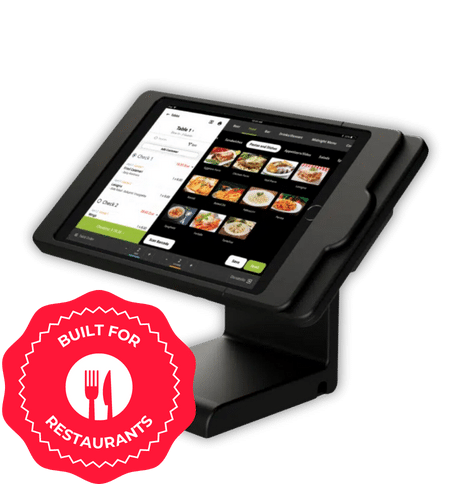The Function of POS Software in Streamlining Sales and Supply Monitoring
POS software application has actually ended up being essential for companies aiming to enhance sales and stock administration. By automating deal processes, it decreases checkout times and enhances accuracy in stock degrees. Moreover, the software provides understandings right into sales patterns, making it possible for businesses to optimize their procedures. However, there are added variables that influence the efficiency of POS systems. Comprehending these elements can lead to also higher efficiency and client complete satisfaction.
Understanding POS Software: Key Features and Conveniences
Point of sale (POS) software program acts as an important tool for organizations, enhancing sales and inventory administration processes. This software program includes important attributes that boost operational performance. One famous function is real-time inventory monitoring, which enables businesses to check stock degrees and minimize the risk of overstocking or stockouts. On top of that, POS systems commonly integrate sales analytics, giving insights right into customer choices and sales trends.Another key advantage is the automation of purchase handling, which lessens human error and accelerate the check out experience. POS software program also supports numerous payment approaches, fitting the diverse choices of consumers. Moreover, easy to use interfaces make it available for staff, lowering training time. Generally, the robust capability of POS software application not only streamlines everyday operations however likewise assists in informed decision-making, eventually adding to enhanced organization performance and consumer complete satisfaction.
Enhancing Sales Processes With POS Solutions
Making use of POS options can greatly improve sales processes by simplifying operations and improving client communications. These systems automate different tasks, such as transaction handling and sales coverage, which decreases human mistake and conserves time. By allowing faster check outs, POS services boost the overall customer experience, leading to increased fulfillment and repeat business.Moreover, these systems give valuable insights into consumer preferences and acquiring patterns. This information can assist businesses tailor their advertising strategies, maximize product placements, and identify very successful things. Additionally, POS solutions frequently integrate with other business tools, facilitating seamless communication across departments.Training team on POS systems is normally uncomplicated, permitting fast adoption and reducing disruptions. As a result, sales groups can focus much more on involving with consumers instead of taking care of cumbersome hands-on procedures. In general, the execution of POS solutions results in an extra reliable sales setting, cultivating development and boosting productivity.
Real-Time Inventory Administration and Monitoring
Effective inventory monitoring is necessary for organizations aiming to maintain excellent stock degrees and meet client need. Real-time supply administration and radar, incorporated within POS software program, facilitate prompt updates on supply degrees, enabling companies to respond promptly to fluctuations in demand. This ability allows merchants to prevent stockouts and overstock scenarios, enhancing storage prices and improving customer fulfillment.
Examining Sales Information for Enlightened Decision Making
Real-time inventory administration not just helps organizations maintain suitable stock degrees yet additionally works as a foundation for assessing sales data. By leveraging point-of-sale (POS) systems, organizations can collect considerable understandings right into sales trends, client choices, and item efficiency. Restaurant POS Software. This data analysis allows businesses to determine peak sales periods, track slow-moving items, and make educated changes to inventory strategies.Furthermore, recognizing sales patterns can promote effective rates methods and promotional projects. Assessing information with time enables organizations to forecast future need much more properly, making certain that stock aligns with anticipated fads. Furthermore, understandings gained can notify more info choices regarding product variety, aiding businesses to focus on high-demand items while phasing out underperforming products. Eventually, informed decision-making based on sales information analysis not only enhances functional effectiveness however also contributes to enhanced profitability and affordable positioning on the market
Improving Client Experience Via POS Combination
As organizations seek to improve customer fulfillment, integrating a robust point-of-sale (POS) system can play a crucial role in improving here the shopping experience. Efficient POS assimilation enables faster transaction processing, minimizing delay times and enhancing general performance. Customers value swift checkouts, which cultivate a favorable assumption of the business.Moreover, modern-day POS systems often consist of functions such as client relationship monitoring (CRM) devices, making it possible for companies to gather valuable data on purchasing behaviors. This information can be utilized to personalize marketing efforts and provide customized referrals, better enhancing client engagement.Additionally, providing several payment options via POS systems satisfies varied client preferences, adding to a smooth purchasing experience. By making certain that stock levels are accurately tracked and updated in real-time, businesses can lessen stockouts, guaranteeing that clients discover the products they look for. Generally, POS combination considerably boosts client experiences, promoting commitment and repeat service.

Frequently Asked Inquiries

Just How Much Does POS Software Application Generally Price for Tiny Companies?
The cost of POS software program for small companies normally varies from $50 to $300 monthly, relying on functions and scalability. In addition, preliminary arrangement fees and equipment expenses might add to the total financial investment.
Can POS Software Application Incorporate With Existing Bookkeeping Equipments?
Many services inquire whether POS software application can flawlessly integrate with their existing accountancy systems. Typically, contemporary POS remedies provide compatibility with numerous audit platforms, improving performance and helping with exact economic administration throughout company procedures.
What Equipment Is Needed for POS Software Program Application?
The needed equipment for POS software program implementation normally consists of a computer or tablet, barcode scanner, invoice printer, cash money drawer, and repayment terminal. Restaurant POS Software. These parts work with each other to assist in reliable sales processing and supply administration
Is POS Software Application Suitable for Online Sales as Well?

Just How Commonly Does POS Software Application Need Updates or Upkeep?
The frequency of updates and maintenance for POS software program mainly depends on the provider and certain system requirements. Normally, regular updates happen quarterly, while upkeep may be required more regularly to guarantee peak efficiency and security. POS software application has actually become necessary for businesses aiming to enhance sales and supply management. Point of sale (POS) software program offers as a vital device for organizations, improving sales and stock monitoring procedures. In addition, POS solutions typically incorporate with other service devices, promoting seamless communication across departments.Training staff on POS systems is usually simple, permitting for fast fostering and decreasing disturbances. As businesses look for to enhance customer fulfillment, incorporating a durable point-of-sale (POS) system can play an essential duty in enhancing the purchasing experience. Consumers value speedy check outs, which promote a positive perception of the business.Moreover, modern POS systems frequently include features such as customer relationship management (CRM) tools, enabling companies to gather useful information on acquiring actions.